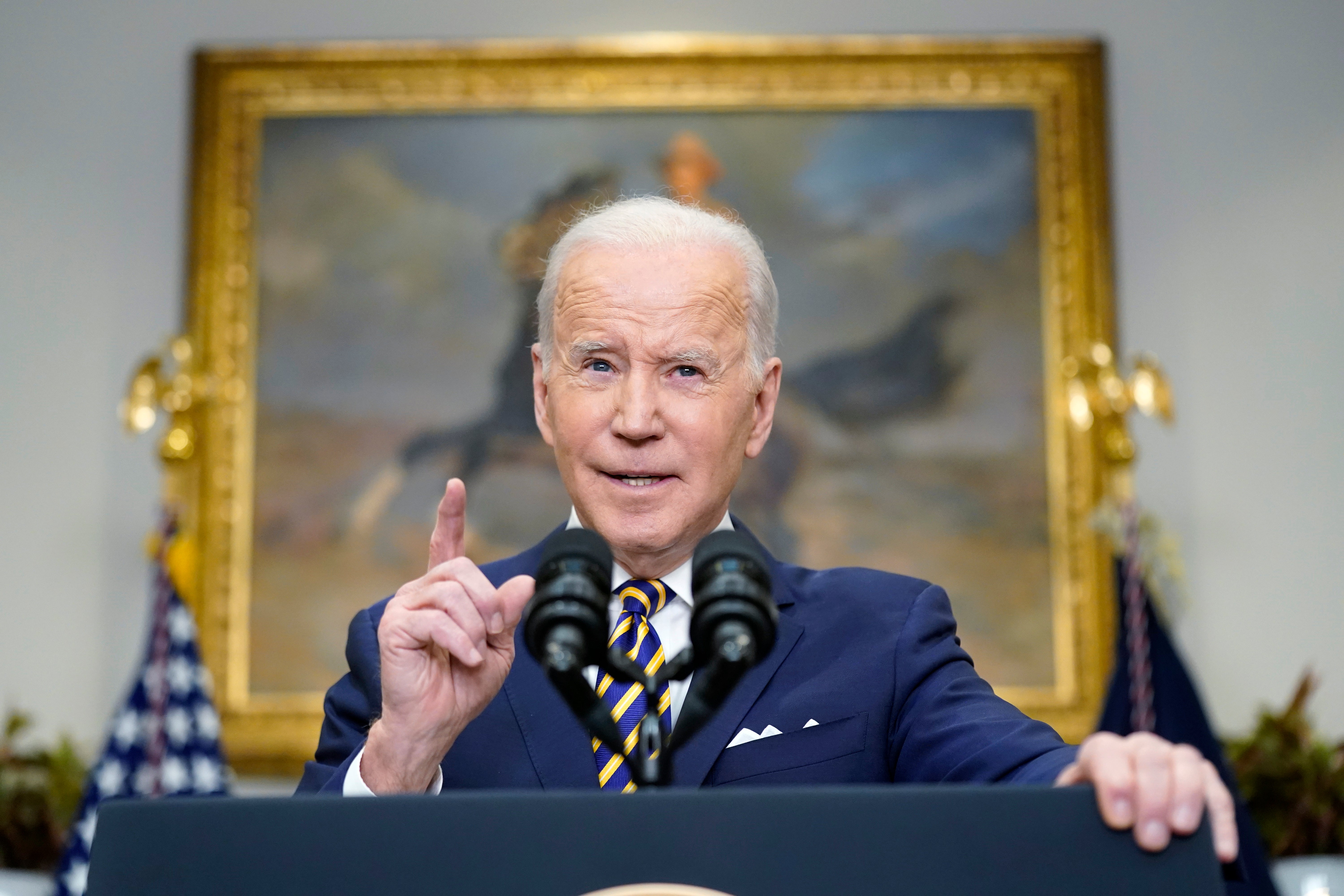Oil continues to climb after western allies announce curbs on Russian imports
Russian sovereign debt is in the spotlight after ratings companies warned of a possible default, and commodities face fresh pressure from the Kremlin

Crude oil extended its rally Wednesday, after the US, EU and UK governments signalled plans to ban or phase out oil and gas imports from Russia, following the country’s violent invasion of Ukraine.
Brent Crude, the global oil benchmark, rose 1.9 per cent on Wednesday morning. The energy source, which is also essential for a range of industrial processes, has climbed nearly 90 per cent in the past year.
Investors were braced for a patchy rally in commodities after President Putin announced intentions to ban exports, without naming specific raw materials or energy inputs.
Metals such as nickel and palladium, which are used in a range of industrial processes including car exhausts, have rocketed in price this week. Palladium reached record highs this week, and trading in Nickel suspended in London on Tuesday after it rose sharply.
Russia’s stock markets remained shuttered as the rouble fell 5 per cent against the US dollar in Moscow on Wednesday.
Credit ratings company, Fitch Ratings, said that Russia could be pushed to default on its debt by sanctions introduced by major economies.
“The further ratcheting up of sanctions, and proposals that could limit trade in energy, increase the probability of a policy response by Russia that includes at least selective non-payment of its sovereign debt obligations,” Fitch said.
Commodities climbed after the business secretary, Kwasi Kwarteng announced that Britain would phase out imports of Russian oil and oil products by the end of the year, and the US government said it would introduce a ban covering energy exports from the country.
The measure would “deprive President Putin of the economic resources he uses to continue his needless war of choice”, a White House factsheet said.
These actions by the US and UK on their own would have only a modest impact, as the two combine for a small share of the country’s energy exports. But the EU, a much bigger consumer of Russian energy, has said it will aim to reduce its consumption of its natural gas from the country by two thirds by the end of 2022.
Even before the government announced the measure, economists had warned that the impact on food production and energy from the Russian invasion would amplify an existing cost of living crisis.
The government’s intervention came after oil-giant Shell announced that it would halt purchases of crude oil from the country, and fellow energy company BP said it would limit its activities to a minimum required for security of supply.
Government officials and business owners had weighed further sanctions on Russia’s key energy exports as ship owners and dock-side staff across the UK and beyond showed they were reluctant to handle the cargo from the country.
Large corporations, including global brands such as McDonald’s and Coca-Cola, have announced that they will suspend operations in Russia.
Subscribe to Independent Premium to bookmark this article
Want to bookmark your favourite articles and stories to read or reference later? Start your Independent Premium subscription today.

Join our commenting forum
Join thought-provoking conversations, follow other Independent readers and see their replies